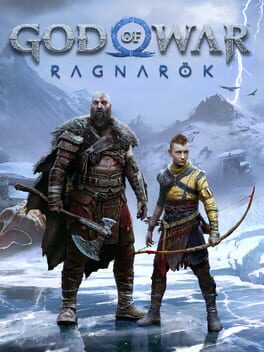The best way I can think of to compare God of War: Ragnarök to its predecessor, God of War (2018), is by contrasting them with two other games in the franchise: God of War II (2007) and the OG, God of War (2005). Back when God of War II was released in 2007, the consensus was something like "It's very similar to its predecessor, but improves upon it in every conceivable way". I remember feeling the same way when I first played it, although, in retrospect, I feel the narrative in God of War II is far less conclusive and, as a consequence, satisfactory than that of the first one, suffering from some serious "middle chapter syndrome" and leaving a sense of incompleteness as a last impression.
When the first trailer for Ragnarök was released, I remember feeling a little aprehensive, thinking the game looked excessively similar to 2018 and that the trailer revealed too much of the plot. Thankfully, I was wrong on both accounts: God of War: Ragnarök, much like God of War II, utilizes the same mechanical framework as God of War 2018 as a foundation, but expands upon and refines every single aspect of it. Not only that, it also masterfully continues the narrative from its predecessor in a way that is both subversive to what the player is led to expect from the ending of God of War 2018, but also extremelly satisfying in a way that makes the story from the previous game feel incomplete without it.
In that sense, Ragnarök succeeds even further than God of War II did back in 2007, serving not only as a spectacular example of what a great sequel is supposed to do, but also becoming the best game in this seventeen year old franchise in the process.
When the first trailer for Ragnarök was released, I remember feeling a little aprehensive, thinking the game looked excessively similar to 2018 and that the trailer revealed too much of the plot. Thankfully, I was wrong on both accounts: God of War: Ragnarök, much like God of War II, utilizes the same mechanical framework as God of War 2018 as a foundation, but expands upon and refines every single aspect of it. Not only that, it also masterfully continues the narrative from its predecessor in a way that is both subversive to what the player is led to expect from the ending of God of War 2018, but also extremelly satisfying in a way that makes the story from the previous game feel incomplete without it.
In that sense, Ragnarök succeeds even further than God of War II did back in 2007, serving not only as a spectacular example of what a great sequel is supposed to do, but also becoming the best game in this seventeen year old franchise in the process.
